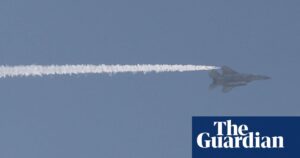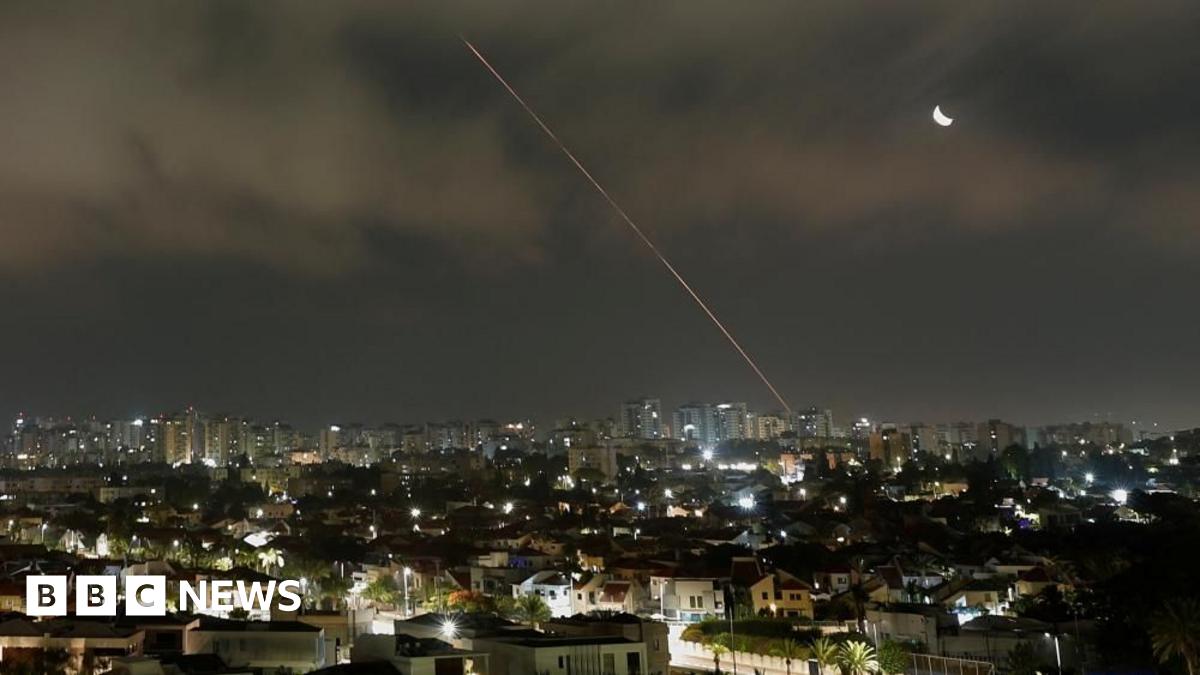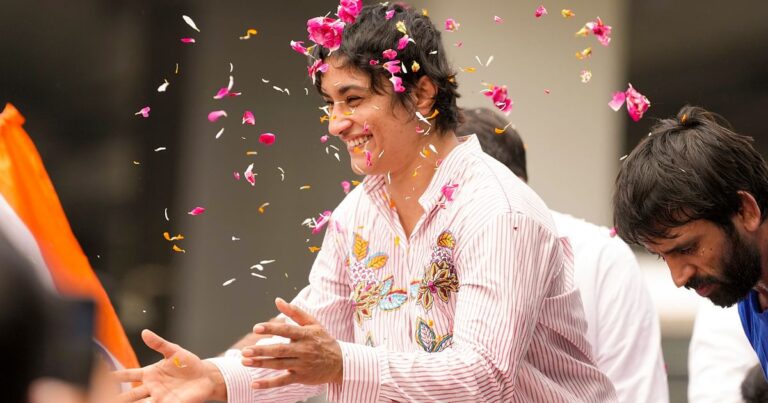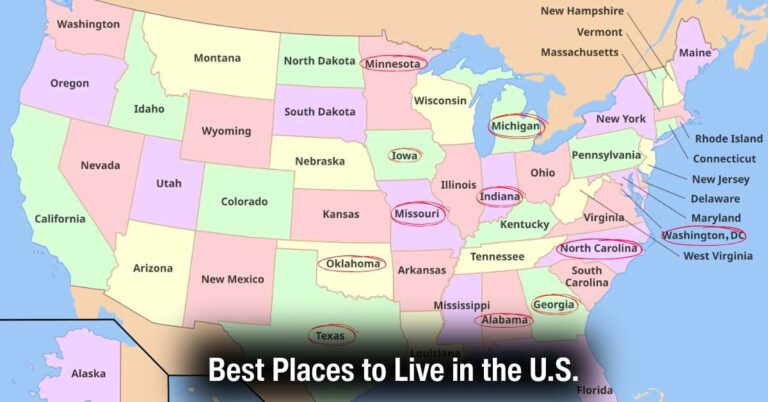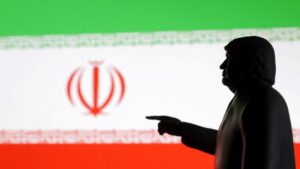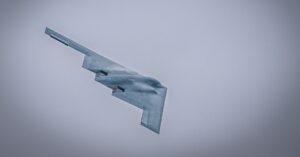US involvement would be ‘very very dangerous’, Iranian foreign minister says
We’ve just been hearing from Iran’s Foreign Minister Abbas Araghchi, who tells reporters that his country “cannot go through negotiations with the US when our people are under bombardment”.
He claims that “the US has been involved in the aggression since day one”, though he does not provide evidence of this.
Speaking to reporters in Istanbul, where he is set to continue diplomatic talks, Araghchi warns that US involvement in the ongoing conflict between Israel and Iran would be “very very dangerous”.
As a reminder, US President Donald Trump approved plans to attack Iran earlier this week but held off from strikes in case Iran agreed to abandon its nuclear programme.
The Iranian foreign minister says he is “absolutely ready for a negotiated solution for our nuclear programme”.
In 2015, Iran agreed a long-term deal on its nuclear programme with a group of world powers after years of tension over the country’s alleged efforts to develop a nuclear weapon.
Araghchi adds: “Diplomacy has worked in the past and can work again in the future. In order for us to come back to diplomacy the aggression must be stopped.”
Another Quds Force commander killed in western Iran, IDF says
Israel claims to have killed another Iranian commander from the same branch of the military as the one we reported killed earlier.
The IDF says its warplanes targeted and killed Behnam Shahriyari as he was travelling in a car through western Iran overnight.
Shahriyari was a commander in the Quds Force’s weapons transfer unit, part of the Islamic Revolutionary Guard Corps, according to the IDF.
It adds he was responsible for transporting Iranian missiles and rockets to proxy groups across the region, including Hamas in Gaza and Hezbollah in Lebanon.
Who was Saeed Izadi, the IRGC’s coordinator with Hamas?
Jiyar Gol
World affairs correspondent
Mohammad Saeed Izadi was a senior commander, serving as the head of the Palestine Corps within the Islamic Revolutionary Guard Corps (IRGC) Quds Force – the IRGC’s overseas operations arm, which has ties with armed groups in the region.
He was targeted in an Israeli attack on an apartment in the Iranian city of Qom. As we reported earlier, Israel says he was killed but the IRGC has not confirmed his death.
Known as a key liaison between Iran and Hamas, Izadi played a central role in co-ordinating Tehran’s support for Palestinian armed groups.
He was reportedly instrumental in arming and financing Hamas. Israel says he helped orchestrate a multi-front assault on Israel that culminated in the Palestinian group’s attack on Israeli communities near Gaza on 7 October 2023.
In April 2024, Izadi narrowly survived an Israeli air strike targeting the Iranian consulate in Damascus, Syria – an attack that killed several high-ranking Quds Force commanders.
Iranian adviser believed to have survived Israeli strike
A senior Iranian political figure initially thought killed in an Israeli strike on Tehran at the start of the nine-day exchange of strikes appears to have survived, Iranian state media reports.
Ali Shamkhani, a former security chief and an adviser to Iran’s Supreme Leader Ali Khamenei, was reportedly injured in an Israeli attack on 13 June.
According to the IRNA state news agency, Shamkhani is in recovering in hospital and now in a stable medical condition.
Shamkhani’s X account posted this morning in English, saying that he had survived the attack.
“It was my fate to survive wounded—so I remain,” the post reads. “Still the reason for the enemy’s hatred. I’d sacrifice myself a hundred times for Iran.”
Trump says Gabbard was ‘wrong’ on Iran
More now from US President Donald Trump, who spoke to reporters yesterday on the tarmac next to Air Force One.
He was asked what intelligence he has that suggests Iran is building a nuclear weapon, when his intelligence community has previously said they have no evidence.
“Well, then my intelligence community is wrong. Who in the intelligence community said that?” Trump asked.
The reporter replied that it was Director of National Intelligence, Tulsi Gabbard.
“She’s wrong,” Trump quickly replied.
In March, Gabbard told Congress that US intelligence agencies determined Iran had not resumed its suspended 2003 nuclear weapons programme, even as the nation’s stockpile of enriched uranium – a component of such weapons – was at an all-time high.
In our previous post, we reported on Gabbard’s recent change of tune.
Read more: What’s behind the Trump and Gabbard split?
Tulsi Gabbard now says Iran could produce nuclear weapon ‘within weeks’
Jake Kwon
North America correspondent
In March Tulsi Gabbard told a Senate Committee Iran was not building nuclear weapons. After Mr Trump said she was wrong, Ms Gabbard blamed the media for distorting her words and now says that she believes Iran could build nuclear weapons within weeks.
President Trump insisted that Iran had gathered a “tremendous amount of material” and could have a weapon within weeks – or if not weeks then months – and the US couldn’t let that happen.
On Thursday, Mr Trump said he would decide within the next fortnight whether the US should join the strikes on Iran.
He now says two weeks is the “maximum” time Iran has to reach a deal with the US – hinting that he could make a decision before the 14 days are up.
The IAEA earlier this month expressed concern that Iran had amassed enough uranium enriched up to 60% purity – a short, technical step away from weapons grade, or 90% – to potentially make nine nuclear bombs.
Iran only ready for diplomatic talks once aggression stops – a recap
On Friday, top diplomats from the UK, EU, Germany and France held hours-long talks with their Iranian counterpart, Abbas Araghchi, in Geneva.
The Europeans had hoped to make progress on a diplomatic breakthrough at what UK Foreign Secretary David Lammy called a “perilous moment”.
But the talks didn’t yield the outcome they wanted.
Araghchi told reporters afterwards Iran was only “ready to consider diplomacy once the aggression is stopped” and Israel is held accountable “for the heinous crimes committed”.
He added that Iran’s nuclear programme was peaceful, and that Iran would continue to “exercise its legitimate right of self-defence”.
“I make it crystal clear that Iran’s defence capabilities are non-negotiable.”
Israel says senior Iranian commander killed in strike – reports
Israel’s Defense Minister Israel Katz said on Saturday the IDF had killed a senior Iranian commander in a strike on an apartment in the city of Qom, local media and Reuters news agency reported.
Saeed Izadi was responsible for financing and arming Hamas ahead of its October 7 attacks on Israel, Katz said.
“This is a major achievement for Israeli intelligence and the Air Force,” Katz said in a statement. “Justice for the murdered and the hostages. Israel’s long arm will reach all its enemies.”
Izadi was a member of Iran’s powerful Quds Force, a branch of the Islamic Revolutionary Guard Corps (IRGC) responsible for overseas activities, including supporting Iran’s proxies in the region.
The IRGC is yet to confirm Izadi’s death.
European discussions yield no breakthrough, but Iran ready to keep talking
Lyse Doucet
Chief international correspondent, reporting from Geneva
Yesterday, European foreign ministers met with their Iranian counterpart in Geneva. Here are the key takeaways from the discussions:
More than three hours of discussions in Geneva yielded no breakthrough.
But European ministers emerged convinced that Iran was ready to keep talking, and more willing to put issues on the table which hadn’t been there before.
They all emphasised that Iran has to resume its talks with the United States.
In his statement, Iran’s Foreign Minister Abbas Araghchi said he was ready to meet with the Europeans again, but would only consider diplomacy with the US once Israeli attacks stopped and, in his words, the aggressor was held accountable.
Britain’s Foreign Secretary David Lammy, who flew straight to Geneva after meetings in Washington with US officials, came with tough messages – that the threat of U.S. military action was real, but a window for diplomacy was still open.
No one can say for sure for how long.
Lammy warned it was “a perilous moment”.
The message from Europe’s top diplomats was that only a negotiated agreement – not more military action – could provide a lasting solution to Iran’s nuclear programme, and to regional stability.

